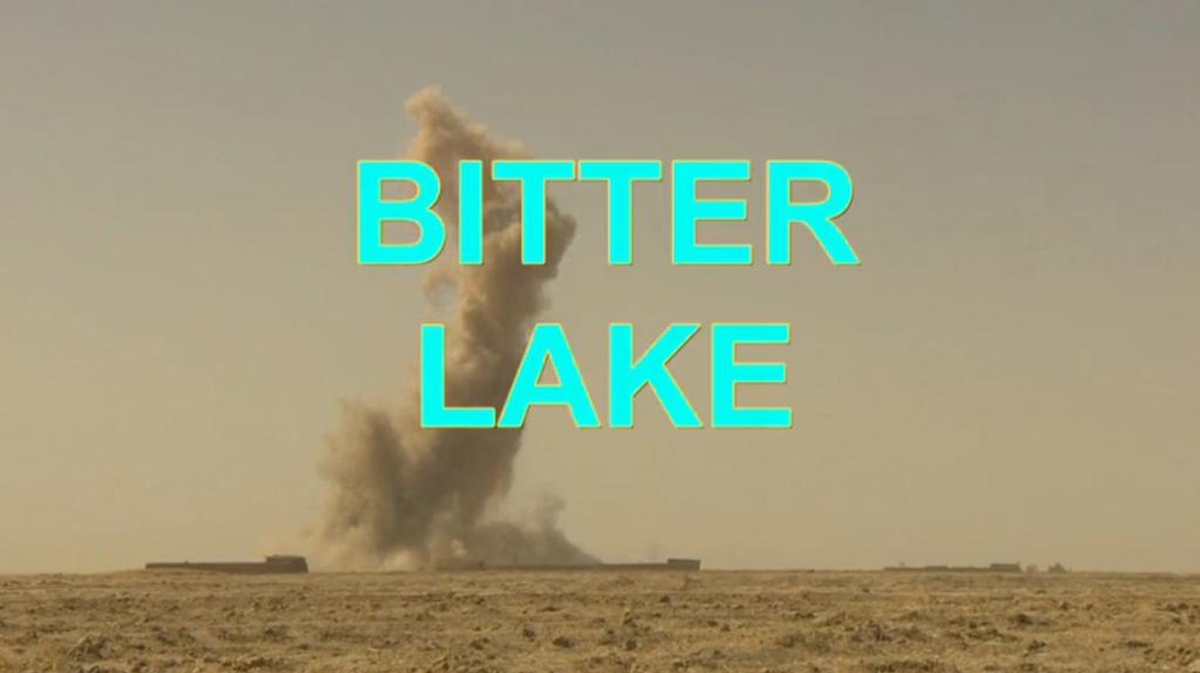Nestled in amongst the rants and rages of Charlie Brooker’s yearly Screen Wipe, you might have noticed an unusual five-minute gem. While the British comedian’s sardonic end of year analysis seemed to attack all the likely suspects (Farage, Brand and the British weather, no surprises there), the same could not be said of Adam Curtis’ short documentary segment. In characteristically ominous overtones, and a clear British RP narration, Curtis observed: “So much of the news this year has been hopeless, depressing and above all, confusing. To which the only response is, oh dear.” He took President Putin’s advisor Vladislav Surkov and his background in avant-garde Russian art as the focus of the film. Confusion, he suggested, dominates the contemporary political and journalistic landscape, where wildly differing narratives are purposefully created to undermine social change. In doing so, it spins a story that’s more dystopian fairy-tale than orthodox political commentary.
For the best part of three decades, Curtis has stamped his mark on the documentary with his provocative, political essay films for the BBC. Like a news reporter for the apocalypse, Curtis presents his essays with cut-ups of newsreel footage and pop culture imagery, all set to a patchwork soundtrack of music clips and ambient noise. The results are ominous and conspiratorial. And the same can be said for his image-heavy blog posts.
This January, he’s skipping the middle man and bypassing television in order to launch his new film Bitter Lake on BBC Iplayer. With that in mind, here’s a brief guide to the man behind the mystery.
Politics run in the family blood
As a left-wing radical who abandoned academia in favour of working in television, Curtis’ family background may well have set a precedent. His grandfather stood for parliament as a socialist while his father Martin Curtis was the left-wing cameraman to the great documentary-maker Humphrey Jennings. After earning a scholarship to Sevenoaks, Curtis read human sciences at Mansfield College, Oxford. He started a PhD at Oxford, but quickly realised he “hated academia.”
He once made films about talking dogs
Curtis’ career has followed an unusual, peculiarly British trajectory. And taking on a BBC training course (where he made a small film comparing designer clothes in music videos to weapons!), he joined the BBC, working on a number of television shows including Esther Rantzen’s That’s Life! and a show about talking dogs. In an interview published on e-flux, Curtis describes a lack of epiphany in arriving at film-making, describing it as more like “a strange drug-induced experience of lurching from one extreme to another, from teaching politics at Oxford and getting bored to making films about talking dogs and dogs that could sing.”
Cut up and the archive
The contemporary media news landscape has clearly influenced his distinctive style, which seems equal parts Chris Marker, equal parts David Lynch. Backed up with trash pop footage and postmodern soundtracks, Curtis creates a web of associations between various images and events. Luckily for him, he’s sitting on one of the greatest archives in the world, the BBC film library.
Controversy and Conspiracies
While Curtis might be (in)famous in certain circles for his controversial statements, it wasn’t until 1989 that he arguably honed this approach. In The Road to Terror, his 1989 Inside Story film, he was meant to examine the torture and mass executions of the leftwing mujahideen in Iran by Ayatollah Khomeini’s forces. Instead, Curtis wove in an alternate narrative about the French Revolution, much to the confusion of the BBC’s bosses. Alan Yentob (then head honcho at BBC2) loved it, and the rest, as they say, is history.
It’s one man’s viewpoint…
As Charlie Brooker screams in one of his shows: “It represents his personal and some might say, controversial viewpoint. It is therefore his viewpoint, it’s his VIEWPOINT…it’s not a big bunch of facts carved into a concrete block by a f***cking fact computer.”
The Century of the Self
Since The Road to Terror, Curtis has gone on to win BAFTAS for his film essays, which often show multiple narratives that focus on power and its abuse. Pandora’s Box looked at the dangers of technocratic rationality. The Mayfair Set told the story of the Clermont Club, a group of wealthy British gamblers who met at Mayfair’s Clermont Club. His celebrated four-part film The Century of the Self examined how Sigmund Freud’s theories were put to use by the public relations industry in order to exert political control. A running theme in his films is how power corrupts, and ideas are muted and turned into systems of control.
Coming Soon To A Device Near You
Curtis is exclusively releasing his new film Bitter Lake on iPlayer, where it will go live on January 25th. Curtis uses the unedited rushes of everything that the BBC has ever shot in Afghanistan, re-editing the footage to montage together an alternate, more emotional narrative about what really happened in Afghanistan. Like several of his films, it suggests that forces over the past 30 years have risen up to purposefully undermine the role of politics, and people’s confidence in its powers to help. In amidst all this, Saudi Arabia’s role in the story looms into focus. And the countdown begins…
Credits
Text Sophia Satchell Baeza
